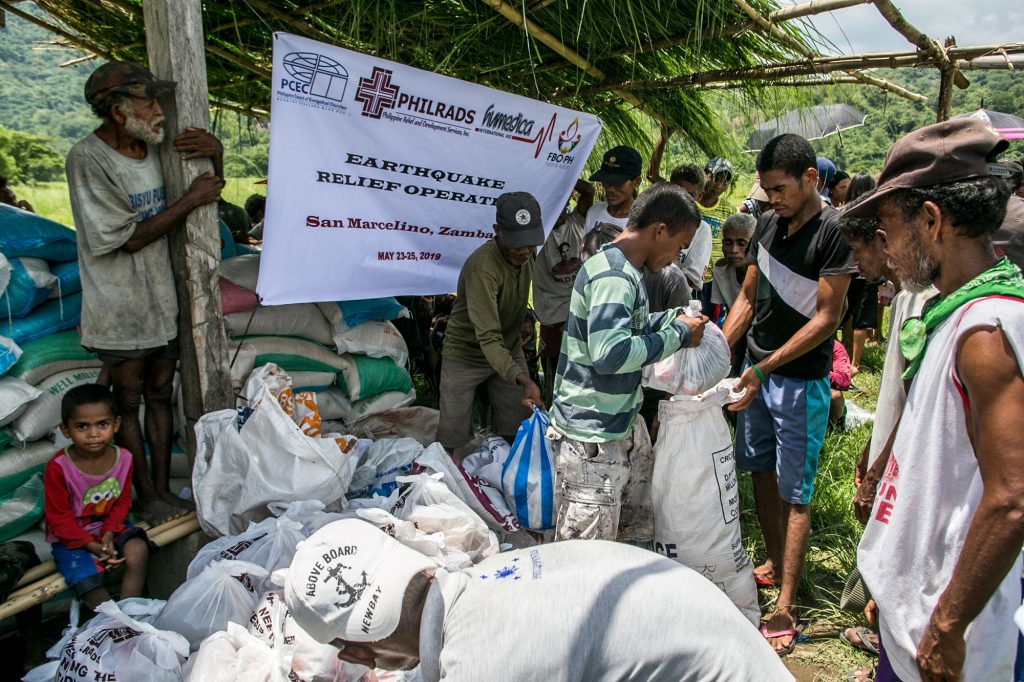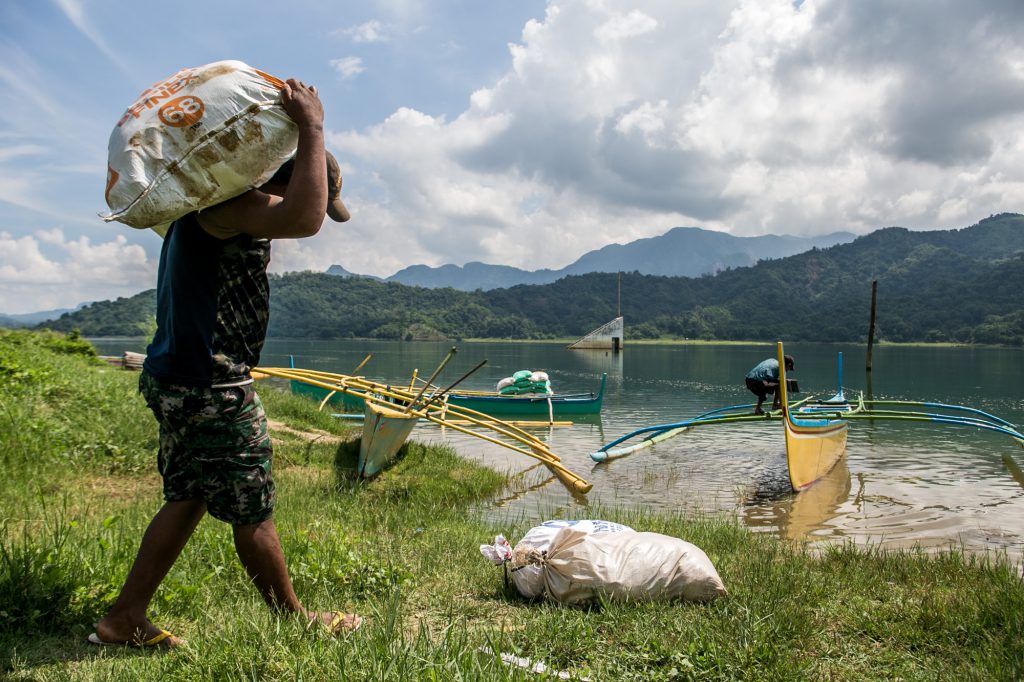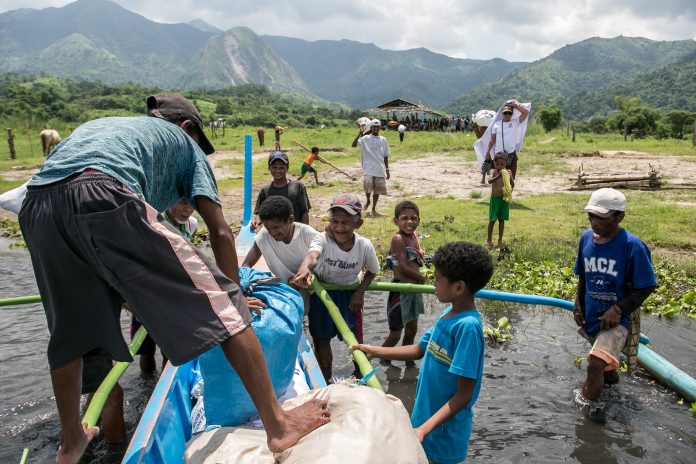Philippine faith-based charity organizations called on those involved in humanitarian response to “empower poor communities” to become local responders to crisis.
On World Humanitarian Day on August 19, the groups reiterated their call to “localize aid” and recognize the capacity of local responders.
Father Edwin Gariguez, former executive secretary of Caritas Philippines, said the coronavirus pandemic has “affected” how international charity groups operate.
He said the situation has, however, allowed local churches and dioceses to develop their own responses to assist poor communities without or with less aid from the outside.
The priest said 67 out of the 85 dioceses in the country have adopted the Caritas Kindness Station program that allows parishes to support the poorest families during the pandemic lockdown.
Father Gariguez said the flow and access to relief aid would be “faster and easier” if the government and international humanitarian agencies allow local communities to manage their own responses.
The priest said “localization of humanitarian aid” can be done if concerned agencies would directly download resources to local communities.
“We are not just referring to financial resources but programs and initiatives that will empower local communities as first responders,” he said.
The priest said localization of humanitarian aid is “one of the many ways that the Church in Asia can respond to the call of Pope Francis to build the ‘civilization of love.’”
He said that with or without the pandemic the Church “is always in the service mode” and building the civilization of love “is always part of our mission.”
“The Kindness Station is one of the many examples on how we can build a civilization of love and advance a localized response to the coronavirus pandemic,” he said.

The Philippine FBO Forum, a network of humanitarian and development arms of the three largest Christian Churches in the country, has also been pressing for “a paradigm shift on aid responses.”
Sylwyn Sheen Alba, advocacy officer of the National Council of Churches in the Philippines, said local responders are “frequently sidelined” during a crisis due to “racialized hierarchies within humanitarian action.”
“Local actors, although welcomed, often felt excluded in humanitarian coordination led by mostly foreign ‘experts’ who dominated the field with their vast resources and technical know-how,” said Alba.
She said it is “high time” to recognize the capacities and advantages of local responders and “rebalance power dynamics.”
While international humanitarian actors have limited access to communities because of the global health crisis, Alba said local faith-based and community-based organizations “continue to exemplify compassionate service to those in need.”
She said the poor, who are often treated as beneficiaries, “have organized themselves and utilized their solidarity to survive.”
Alba said a “paradigm shift” is needed to empower poor communities as “first responders capable of deciding their own fate.”
“This global crisis has crystalized the very essence of local humanitarian action, a response defined and led by affected communities,” she said.

Bishop Noel Pantoja of the Philippine Council of Evangelical Churches praised the Church’s “real-life heroes” for their sacrifices to continue the mission for the poor who are affected by the pandemic.
“We salute, we bless, we honor the people who are serving us, and who are giving the ultimate sacrifice so that we will enjoy health, we will enjoy life, and the things that we enjoy today,” he said.
The prelate said the country is rich with healthcare workers, humanitarian workers, and church workers “who selflessly give their time and efforts, and even their lives, in order to help the people around them.”
Bishop Pantoja, who heads the Philippine FBO Forum, paid tribute to all aid workers who were attacked, wounded, or killed while extending service to the people.
The United Nations has reported a total of 483 cases of attacks against aid workers in 2019.
At least 125 were killed, 234 were wounded, and 124 were kidnapped in 277 separate incidents around the world.
The figures represent an 18 percent rise in the number of victims and a 21 percent rise in the number of attacks in the previous year.









